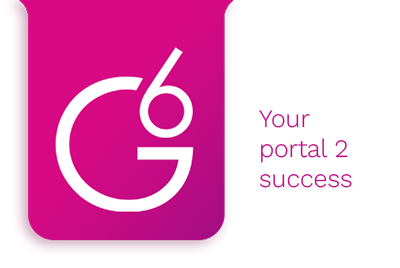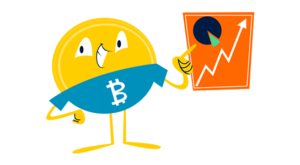Does your team find it challenging to find your company’s target audience? Is your sales conversion rate hurting as a result?
Several small businesses need help distinguishing people who are highly likely to purchase from those who aren’t interested.
Hi, my name is AJ! I started Small Business Bonfire after selling my own company for multiple seven figures.
I learned several things while growing my company, one of which was the importance of identifying hot leads.
So, if you’re ready to learn how to generate more qualified leads that will boost sales, make sure you keep reading! I’m covering everything you need to know!
Key Takeaways
Hot leads are people who are qualified and highly likely to buy something from your brand.
Hot leads have the financial means to purchase your product and a clear timeline.
Having distinguishing criteria for hot, warm, and cold leads is crucial.
It’s critical to store cold leads’ information to reach out to them at a later time.
Related Reading: Best Small Business CRM
SBB Featured Partners
A hot lead is a qualified lead, meaning the person is highly interested in your company’s products or services.
Further, hot leads are ready to talk with your sales team to learn more about your products and close the sale.
These sales leads meet the criteria your company creates as its target audience, meaning your products or services fill a need or want in this person’s life.
Before your team can determine a hot sales lead, you must know how to identify them.
Identifying these leads is crucial because you want them to start the sales process immediately.
A high level of interest in your product signifies a hot lead because it indicates the potential customer recognizes a need or desire that your product can fulfill.
Further, this strong interest often translates into a readiness to engage in the purchasing process.
As a result, this makes the lead a prime candidate for conversion to a sale!
When your product can solve a problem the lead is experiencing, it signifies they are a hot lead.
When hot sales leads have a problem they want to fix and discover your company can do so, they see the value and necessity your solution brings.
Therefore, these prospects are likelier to enter the sales cycle and purchase your product or service.
When a lead has the budget to purchase your product or service, it’s another strong signal that they’re a hot lead.
Having the financial means to buy what you’re selling removes a significant barrier in the sales process and propels them closer to conversion.
Hot leads (typically) have a clear timeframe in which they want to purchase your products or services.
As a result, you and your sales team know when you can expect to close the deal!
It’s essential to know the difference between hot, warm, and cold leads (as it pertains to your company’s standards).
Here’s what distinguishes these different leads so your sales funnel is as efficient as possible!
A cold lead is a potential customer who hasn’t expressed direct interest in your products or services.
Generally, these leads have minimal contact with your business and may not be aware of your offerings.
Although they may not be ready for conversion at the moment, nurturing these leads with targeted marketing strategies can gradually warm them up to your brand.
Typically, your sales team contacts these people via cold outreach.
If someone has expressed any kind of interest in your products or services but doesn’t have a sense of urgency or a timeline for their purchase, they’re a warm lead.
Typically, warm leads take the following actions:
People who opted to receive a weekly newsletter People who submitted a contact form People who follow your company’s social media accounts
A hot lead is a prospective customer who has demonstrated a high level of interest in your product or service and is ready to purchase.
Further, these sales leads meet all the criteria established by your company for a target customer.
These criteria include the following things:
Having the budget for your product or serviceHaving a problem your product can solveHaving a clear timeline for the purchase
Though seemingly similar, hot and qualified leads uniquely differ in sales terminology.
For instance, a qualified lead refers to a potential customer who is interested in your products or services and meets your company’s broader criteria.
These criteria usually include the following demographic and behavioral factors:
AgeIncomeLocationJob titlePrior buying behaviorInteractions with your brandEngagement with your social media or marketing content
On the other hand, a hot lead is much more specific.
A hot lead is not just interested; they’re primed and ready to purchase.
Hot leads have expressed a high degree of interest, have a problem your product or service can solve, possess the budget to purchase, and have a defined timeline.
Put simply, hot leads are a subset of qualified leads that are at a much later stage in the buying cycle and poised for conversion.
Understanding these two terms’ distinctions is crucial in tailoring your approach and guiding these leads down the sales funnel!
How can your team generate hot leads and convert them to paying customers?
Numerous strategies have proven effective throughout my time as a business owner.
Here are seven tips and tricks to convert hot leads!
Identifying a hot lead’s engagement level is crucial in the sales cycle.
High engagement signifies that the lead actively interacts with your brand, such as the following actions:
Visiting your websiteClicking on your emailsCommunicating with your sales team
This active participation illustrates the sales leads’ interest and readiness to purchase your product or service!
Therefore, tracking and analyzing this engagement, your sales team can better strategize their approach, tailor their communication, and expedite the conversion process.
Supporting hot leads with targeted marketing efforts is crucial to converting leads into sales!
Marketing initiatives provide valuable information and reinforce the lead’s decision to purchase, making them feel more secure and informed.
Also, personalized marketing efforts can make the lead feel valued and understood.
As a result, feeling valued ultimately fosters a stronger relationship and pushes them closer to conversion.
Personalization is another essential action when you’re nurturing and converting hot leads.
By tailoring your interactions and communications to your leads’ specific needs and interests, you show that you understand and value them.
Showing your leads you genuinely care about them creates a deeper level of engagement, fostering trust and increasing the likelihood that they’ll choose your product or service.
Therefore, personalization is not just about making a sale; it’s about building relationships and ensuring customer satisfaction!
Establishing trust with your warm and hot leads is a cornerstone of successful conversions.
Providing a sense of trust creates a foundation of confidence that alleviates any reservations about purchasing your product or service.
Most importantly, trust fosters long-term customer relationships, leading to repeat business and positive word-of-mouth referrals that can further drive sales.
Sales teams must focus on generating loyal, repeat customers because selling to the same customer twice is significantly less expensive than finding a new buyer.
Speeding up your sales efforts is critical in capitalizing on a hot lead’s intent and readiness to purchase.
For example, a swift and efficient sales process can prevent prospects from doing the following things:
Losing interestSearching for alternativesReconsidering their purchase decisionTurning into cold leads
Therefore, a quick response time positively impacts conversion rates and enhances the customer experience, leading to improved customer satisfaction and loyalty.
Outperforming your competition is vital for several reasons, including winning over hot leads.
A competitive edge helps your business stand out, providing prospects with compelling reasons to choose your products or services over others.
Also, going above and beyond what your competition does fosters trust and credibility, showcasing your ability to deliver superior solutions.
At the end of the day, being better than your competition (even if it’s just by a small amount) influences hot leads toward the final stage in the sales cycle.
Following up with lost hot leads is essential in a sales and lead generation strategy.
A lost hot lead is someone who, at one point, expressed a high level of interest in your product or service but dropped off before converting.
Following up with a sales lead can uncover why the lead did not convert and offer insights to refine your sales process.
Also, this action provides an opportunity to maintain relationships with these potential customers, keeping your brand in mind for future purchase decisions.
A well-executed follow-up can sometimes reignite interest and turn a lost hot lead into a promising prospect.
Customer Relationship Management (CRM) software has become a game-changer in how businesses manage and interact with their hot leads!
A powerful CRM system can streamline the entire lead management and lead generation process.
These software systems offer a centralized platform to store, track, and analyze lead information.
Let’s look at CRM systems and how they can help you nurture warm leads, convert hot leads, and keep cold leads’ information stored and ready.
CRM software allows you to organize your leads efficiently and ensures easy accessibility to vital data.
Further, teams can view the following information about warm and hot leads:
History of interactionsPreferencesConcernsBuying patterns
Understanding these details about a sales lead enables a personalized approach to communication.
CRM systems provide automation capabilities, saving valuable time on routine tasks.
For instance, many CRM tools can automatically categorize leads based on their engagement level, making it easier for sales reps to identify and prioritize hot leads!
A good CRM software can schedule follow-ups and reminders, ensuring no potential sale falls through the cracks.
Also, these systems can assist in nurturing leads through automated yet personalized emails or messages to keep your brand at the forefront of their minds.
CRM tools offer analytical tools that can do the following things:
Track the lead conversion rateMeasure the effectiveness of different strategiesOffer insights to improve your sales process
By leveraging CRM software, businesses can manage their hot leads more effectively.
Effectively managing these leads means nurturing them to conversion, enhancing customer satisfaction, and eventually boosting sales productivity!
Here are some examples of what hot leads can look like!
I’m describing leads for a fictional shoe store that strictly does business online in these examples.
Consider a customer who has recently visited your website multiple times within a short period and has viewed several shoe products’ detail pages.
They have even gone as far as adding a few pairs of shoes to their virtual shopping cart.
Further, this prospect has downloaded your e-commerce app, signed up for your newsletter, and followed your brand on social media.
As you can see, this potential customer is showing significant interest and engagement with your brand, making them a hot lead.
Another example of a hot sales lead could be a returning customer who has previously purchased shoes from your brand.
They frequently open and click through your email marketing campaigns, showing consistent interest in your brand and its offerings.
Recently, they completed a survey you sent out, indicating their interest in a new shoe line you’re about to launch.
This returning customer’s actions demonstrate a high likelihood to purchase, marking them as a hot lead!
Understanding the differences between cold, warm, and hot sales prospects is critical for several reasons.
For instance, knowing these distinctions between leads ensures sales teams only spend time on the prospects who are most likely to buy something.
Remember, hot leads are qualified to buy your products or services AND have shown significant interest in buying something.
On the other hand, warm leads are prospects who have shown little interest but could use some nurturing.
What criteria does your team use to distinguish warm leads from hot ones? Let us know in the comments section below!
The post What is a Hot Lead in Sales? Guide for SMB Sales appeared first on Small Business Bonfire.
—
Blog powered by G6
Disclaimer! A guest author has made this post. G6 has not checked the post. its content and attachments and under no circumstances will G6 be held responsible or liable in any way for any claims, damages, losses, expenses, costs or liabilities whatsoever (including, without limitation, any direct or indirect damages for loss of profits, business interruption or loss of information) resulting or arising directly or indirectly from your use of or inability to use this website or any websites linked to it, or from your reliance on the information and material on this website, even if the G6 has been advised of the possibility of such damages in advance.
For any inquiries, please contact [email protected]




